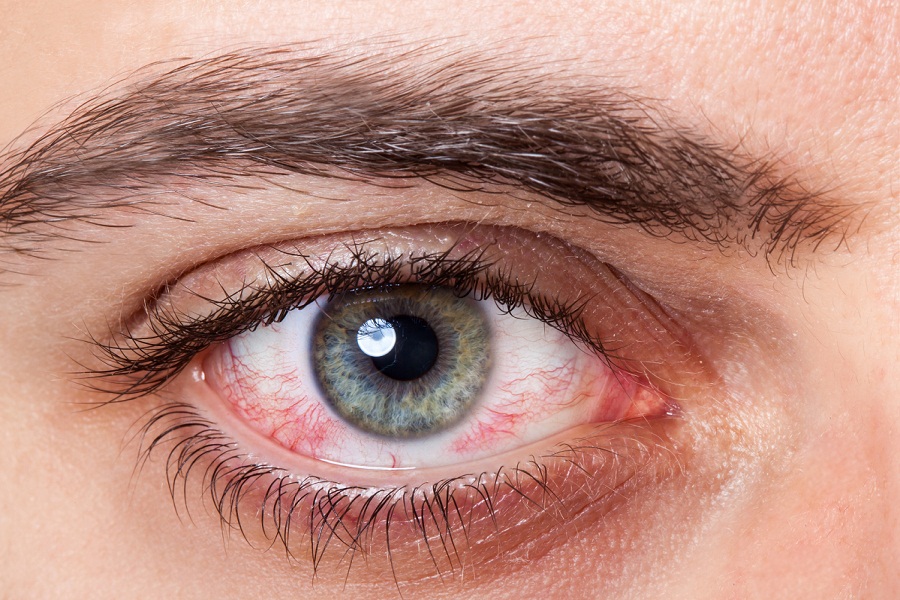
Published :
Updated :

Have red, puffy, watery eyes since you came back home? Maybe it’s the allergy! Popularly known as conjunctivitis, eye allergy results from irritating conjunctiva, the delicate covering of our eyes.
There are many irritants capable of causing eye allergies. The commonest one is probably pollen from trees, grass or weeds. So, if it is the pollen season of the year, sensitive people might need to make a few adjustments to protect themselves.
Mould spores are also another important cause, as are dust mites. People allergic to dust mites may start experiencing symptoms while cleaning the house. Some people are even allergic to diesel exhaust, cigarette smoke and perfume.
The principal feature of eye allergy is redness of the eye, which may be accompanied by some swelling. There could be a burning feeling in the eye, itching, watery secretions, and sometimes, pain.
What can we do? Dr Princess Ogbogu, director of the Division of Allergy and Immunology at the Ohio State University, suggested face washing as the first step.
According to Dr Ogbogu, this may soothe the symptoms a little bit. The next approach should be cleaning the eyes under running water war by using normal saline. This can help dislodge the allergen from the eye and flush it away.
Cold compress usually helps. This can be done by soaking a clean cloth in cold water (not ice-cold). Or we can put the cloth in the refrigerator for a few minutes to get the desired coldness. Next, the cold cloth should be applied to the eye. This may help alleviate the swelling and itching.
Maintaining personal hygiene is important. Regular hand washing is essential, especially after coming from outside.
Many of us feel the urge to use our hands to combat the itch when suffering from an allergy. This only exacerbates the allergy. We should never touch the eye with our hands. In case we touch it, hands must be washed immediately with soap and water.
Some over-the-counter medications (medicines that do not require a prescription) are helpful. Antihistamines are good options to reduce allergy symptoms. Decongestant eye drops can reduce redness.
However, such drops should be limited to three days only; otherwise, they can exacerbate symptoms. Artificial tears may be useful if the patient also has dry eyes.
Prevention is always better. So, if we know which allergens can irritate our eyes, we must make an effort to avoid them. If pollen is the culprit, the windows should be kept closed during pollen season. If possible, home and car air conditioning is recommended.
Cutting outdoor work as much as possible during the season is advisable. This is especially true for mid-morning and early evening when pollen count is usually at the highest level. If we have to go out, our eyes should be protected with sunglasses.
For dust mites, protective covers are available in the market. We can use those to cover our bedding. While cleaning the house, a dry dust broom should be exchanged for a damp mop or wet cloth. This can significantly reduce the risk of eye allergy for sensitive people.
imtiazdmc@gmail.com


 For all latest news, follow The Financial Express Google News channel.
For all latest news, follow The Financial Express Google News channel.